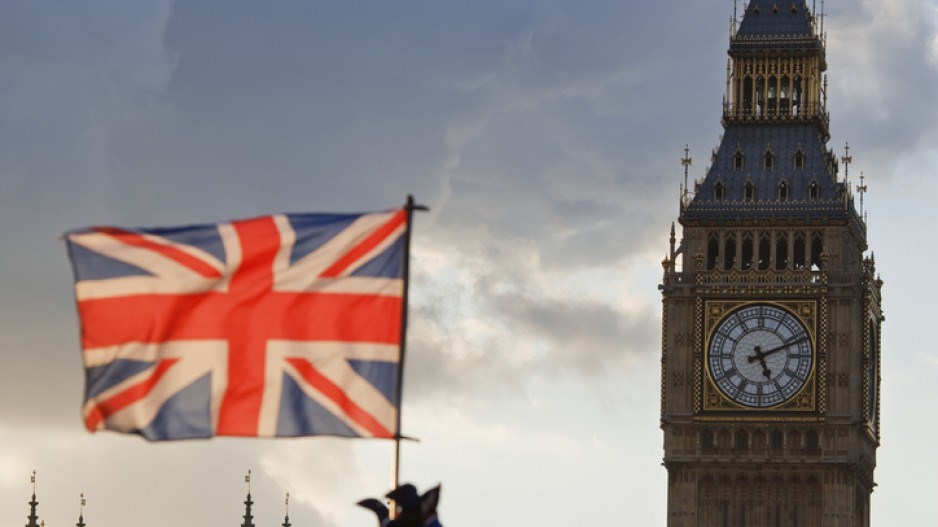Once a year, Research Co. and Glacier Media ask Canadians about the monarchy and the members of the Royal Family.
In February 2021, the proportion of the country’s residents who expressed a desire to have an elected head of state reached 45 per cent, growing to 49 per cent in February 2022.
In American politics, polls in a presidential election year sometimes capture a “convention bounce.” Wall-to-wall coverage of a political party’s get-together usually generates goodwill towards the eventual nominee. Our survey in September 2022, following the death of Queen Elizabeth II, appears to outline the phenomenon perfectly. At the time, 31 per cent of Canadians expressed a desire for the monarchy to continue, up 10 points since February.
It is now clear that the bounce was fleeting. This month, and for the first time in eight national surveys I have conducted since 2009, fewer than one in five Canadians (19 per cent) want Canada to remain a monarchy, while more than two in five (44 per cent) would rather have an elected head of state. This leaves 22 per cent of the country’s residents who do not care either way, and 15 per cent who are undecided.
Along with the eye-catching 12-point drop in the desire of Canadians to have a King, there are some interesting regional shifts. Almost half of Quebecers and Ontarians (48 per cent) are in favour of having an elected head of state in Canada. The continuation of the monarchy finds tepid endorsement in Atlantic Canada (24 per cent) and British Columbia (23 per cent).
The absence of a truly popular monarch can be directly tied to these numbers. In February 2022, 64 per cent of Canadians had a favourable view of Queen Elizabeth II. In that same survey, Prince Charles checked in at 35 per cent. By September, King Charles was seen favourably by 46 per cent of Canadians – a double-digit increase but still well below the numbers posted by his mother.
This month, with the pageantry of the coronation looming, only 32 per cent of Canadians have a favourable opinion of King Charles (down 14 points since September). The rating is even lower for Queen Consort Camilla (22 per cent, down 10 points).
The wave of coldness has also affected the favourability numbers of the Prince and Princess of Wales. While most Canadians hold favourable views of William and Kate (54 per cent each), they are both 13 points below their September 2022 score.
Canadian fans of the Duke and Duchess of Sussex, who may have expected a rekindling, will be disappointed. The favourability rating for Prince Harry has fallen to 46 per cent in Canada (down 18 points), with Meghan five points behind (41 per cent, down 12 points). Canadians who would prefer for the monarchy to continue are more likely to hold favourable views on Harry and Meghan than those who yearn for an elected head of state. We must also acknowledge that the Netflix series worked well to an extent: Canadians who watched it are significantly more likely to view Harry and Meghan favourably (71 per cent and 68 per cent, respectively).
There is some movement on a question related to the country’s future. The proportion of Canadians who expect Canada to still be a monarchy 20 years from now fell from 52 per cent in September to 47 per cent this month. In stark contrast with what has transpired in the Caribbean, discussions about colonialism in Canada have not fully developed into a political debate over our constitutional composition. Outside of Quebec, no politician has openly challenged the status quo.
The unpopularity of King Charles extends into other areas. Just over a third of Canadians (35 per cent, up one point) have reservations with his presence on Canadian coins and bills, and half (50 per cent, down five points) would have preferred to witness Prince William’s coronation later this year.
One way to modify these numbers – both for the King and the institution he now heads – is to focus on what residents want. Most Canadians continue to call on King Charles to reduce the carbon footprint of the Royal Family (70 per cent, down four points) and foster reconciliation with Indigenous Peoples (65 per cent, down four points).
We have known for years – when survey after survey showed Canadians identifying more with William than Charles – that sustaining the monarchy in this century would not be easy with an uncharismatic figure. Some may have expected the King to grow into his role and generate more favourable opinions. The first six months on the “top job” have clearly not been kind.
Mario Canseco is president of Research Co.
Results are based on an online study conducted from March 3-5 among 1,000 adults in Canada. The data has been statistically weighted according to Canadian census figures for age, gender and region. The margin of error is plus or minus 3.1 percentage points, 19 times out of 20.



